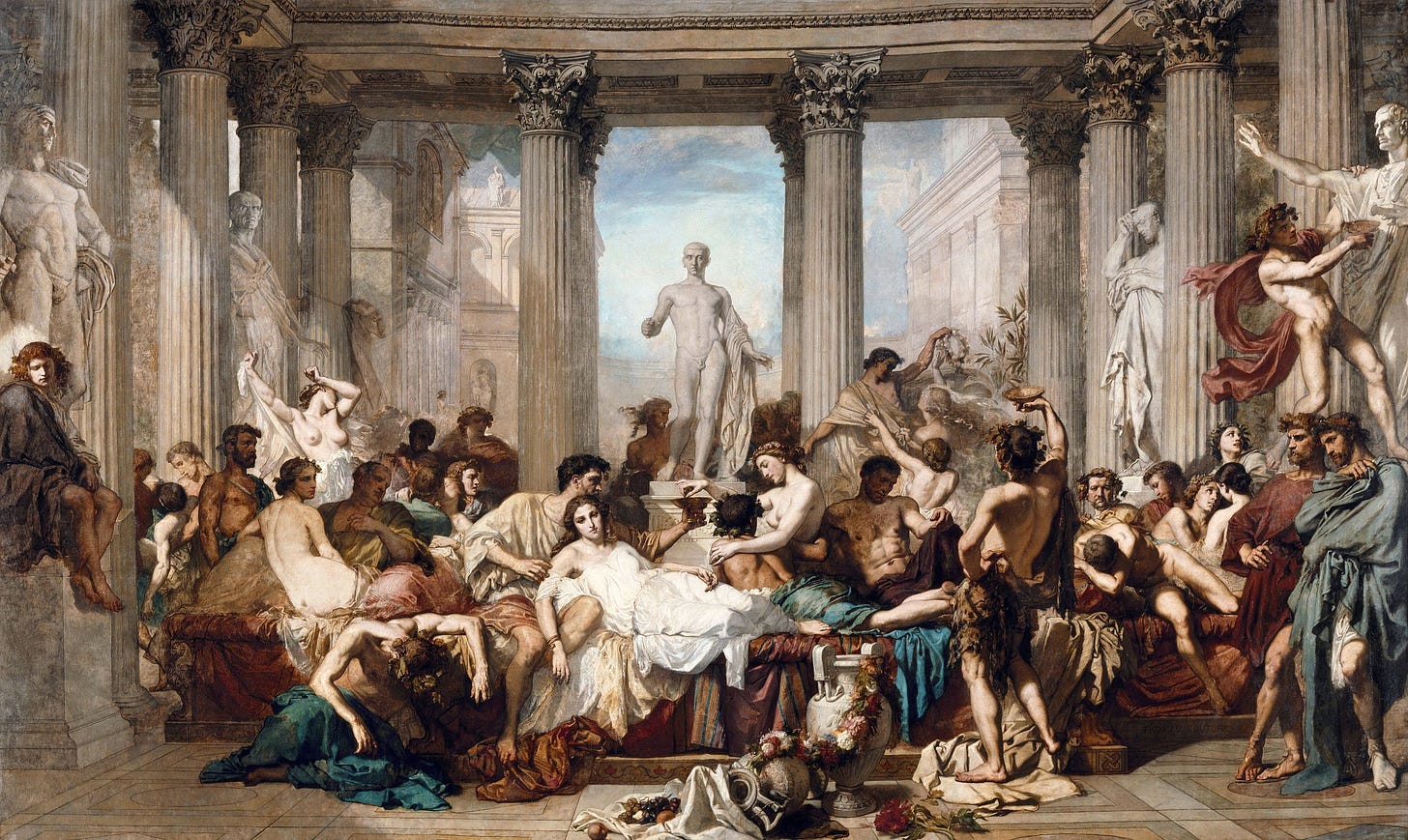I recently published an article in COMMENT Magazine on the rapid increase in persons dying by Medical Assistance in Dying (MAID) in Canada. About the same time, David Brooks wrote on MAID and liberalism in The Atlantic. He argued that Canada and many similar countries suffer from an excess of what he called ‘autonomy-based liberalism.’ Brooks captured much of what’s missing from autonomy-based liberalism in clear, non-sectarian language. In essence, modern secular people are rootless, with excess autonomy and the absence of counterbalancing commitments to solidarity and the common good.
COMMENT’s editor, Anne Snyder, asked me why so many secular elites – including my friends and colleagues – are intensely committed to the right to assisted suicide or euthanasia. Brooks’ article provides part of the answer, to which I would add three points.
First, life feels precarious. It’s stunning that despite 3.4% unemployment, almost 60% of Americans say the country is on the wrong track. My friends fear different things: a climate apocalypse, war, another financial crisis, or another pandemic. We see a paralyzed federal government incapable of addressing these (or any) problems. It’s hard to affirm life when so many threats exist to our children and grandchildren.
Second, everyone knows that our society provides inadequate care for many with terminal illnesses, dementia, or the disabilities of aging. Suicide and depression are epidemics among those at the end of life, but good mental health care is hard to access. Assisted living or skilled nursing homes are either prohibitively expensive or grimly institutional and medically substandard. The hospice industry is riven with fraud. We know many of us will need a lot of care, and we’re not confident we will live decently at the end of our lives.
Finally, many friends fear the loss of capability through aging or sickness. Their diminished capabilities will reduce them to dependence and a life without dignity. They want the right to end their lives pre-emptively to avoid this. As a case in point, I recommend Amy Bloom’s memoir of her husband Brian Ameche’s assisted suicide.
The loss of disability is genuine hardship. But my friends are also committed meritocrats, consecrated as a modern nobility by degrees awarded at elite schools. They believe their superior positions rest on objective criteria for excellence. Dignity, as they understand it in practice if not in theory, means that others should treat them with deference due to their merits.
But as I found when I passed from the Republic of Health to the Kingdom of Cancer, people stopped calling me ‘doctor’ or ‘professor.’ Now I’m ‘mister.’ Without hope for a life that they will value at the end of life, people despair and demand the option to die early.

I want to sketch a better way to value the end of life. I came to my views from the gospels and the Catholic Social Teaching.
Briefly: human dignity, rightly understood, is universal and impervious to the loss of capability. We should value capability as an instrumental good, for how it enables us to serve God and our neighbour. We should not view it as something valuable for its own sake. In the Sermon on the Mount, Jesus presented a view of happiness and human flourishing that rejected all social hierarchies. The able and disabled have equal worth and status.
However, we need more than an interior revolution. Universal human dignity is just an abstraction unless we can provide everyone at the end of life with decent housing, a supportive community, and good healthcare.
In his last discourse in John’s gospel, when he knew he was about to die in torture, Jesus invited his disciples to find joy by joining him, God, and their neighbours in bonds of love. We needn’t despair, because we have this same hope for joy in love at the end of our lives.
We need to preserve liberalism to get to that world. But like Brooks, I believe liberalism is necessary but insufficient. I don’t think we can protect our common home or advance the common good without empowering ordinary people through an enhanced democracy (possibly on the lines of Hélène Landemore).
In contrast to Amy Bloom and Brian Ameche, I think of Fr Pedro Arrupe, SJ, who had been a missionary in Hiroshima on August 6, 1945. He later became the 28th Superior of his order, a position he lost after a devastating stroke. But disability did not devalue his life. At his last Jesuit meeting, he prayed,
More than ever I find myself in the hands of God. This is what I have wanted all my life from my youth. But now there is a difference; the initiative is entirely with God. It is indeed a profound spiritual experience to know and feel myself so totally in God’s hands.






>Briefly: human dignity, rightly understood, is universal and impervious to the loss of capability. We should value capability as an instrumental good, for how it enables us to serve God and our neighbour. We should not view it as something valuable for its own sake.
Vanstone, W. H. (1982). The Stature of Waiting. Publisher. Pages 89-90, 150-151
"A bishop of the Church, a man of long and great achievement, became towards the end of his life totally blind and so much afflicted with a number of different illnesses and disabilities that he was confined to bed and almost deprived of the power of movement. He lay supine on the bed, his arms limp, the palms of his hands upwards, so that his very posture suggested his total exposure to whatever might be done to him, his total dependence and helplessness. As one stood beside him on a particular morning some weeks before his death, one had a sudden and overwhelming impression that something of extraordinary significance was going on before one’s eyes – something that even surpassed in its significance all that the bishop had done in his years of activity and achievement and service. This impression did not arise from the manner in which the patient reacted to his condition – from any obvious evidences of his cheerfulness or courage: for he spoke hardly at all, and there could be no other expression of his thoughts or feelings. The impression seemed to come, strangely, from the totality of his helplessness and exposure. He was now simply an object exposed to the world around him, receiving whatever the world might do to him; yet in his passion he seemed by no means diminished in human dignity but rather, if that were possible, enlarged. . . .
"We referred in an earlier chapter to an image stored in the memory: the image of a man of great achievement lying, at the end of his life, blind, immobile and almost totally helpless upon his bed. He was lying in the very room which he had planned and created to be his writing-room during his retirement. That he was not able to write and contribute to the world’s store of wisdom is loss to many; but the effect that his writing might have had was perhaps no greater thing than what was actually happening in the room in which he lay. The world might have been affected by his writings, changed in some degree for the better; but there in the room the world was being, in a profound sense of the word, understood. A man was there handed over to receive, without possibility of escape or evasion and scarcely any possibility of response, the impact of whatever features of the world might fall upon him – arthritic pain in its onset or easing, warmth or coolness as the sun shone through the window or passed behind a cloud, the sound of wind in the trees or voices from another room: food from his wife’s hands, her almost constant presence, her occasional absence: a visit from a friend and whatever the friend might say: the failure of another friend to come. ‘How much’, one would be inclined to say, ‘these things must have meant to him’; and in saying this one would put one’s finger rather precisely on the ‘greatness’ of what was happening in the room. Variations of sun and shade, voices and passing sounds, were raised to a kind of greatness in that room because they bore with unmitigated intensity upon a figure totally exposed to them. That figure was a point at which ordinary events became exceedingly important not for their material consequences but for the appearance in and to that figure of their power of meaning."
I have an alternate view on lung physiology that dismisses the notion of oxygen and carbon dioxide gaseous exchange
The article is titled
We breathe air not oxygen
I take you though all the steps that lead to this statement
Including how oxygen is manufactured
How oxygen is calibrated
Eg medical oxygen has 67parts per million of water contamination
Why oxygen is toxic, dehydrates and damages the alveoli
Lung physiology requires the air at the alveoli to reach 100% humidity
Can you see the problem?
The new take on lung physiology:
The lungs rehydrate the passing RBCs with iso tonic saline solution as they pass through the alveoli capillary beds
RBCs change from dark contracted dehydrated to plump bright hydrated form as they soak up the iso tonic saline solution the bursting alveoli bubbles throw upon the capillary sac
The airway mucosa conditions the breathe with salt and moisture
Seasonality of colds/flu is related to cold dry air and dehydration
Dehydration is the point of susceptibility
Find the article
Jane333.Substack.com